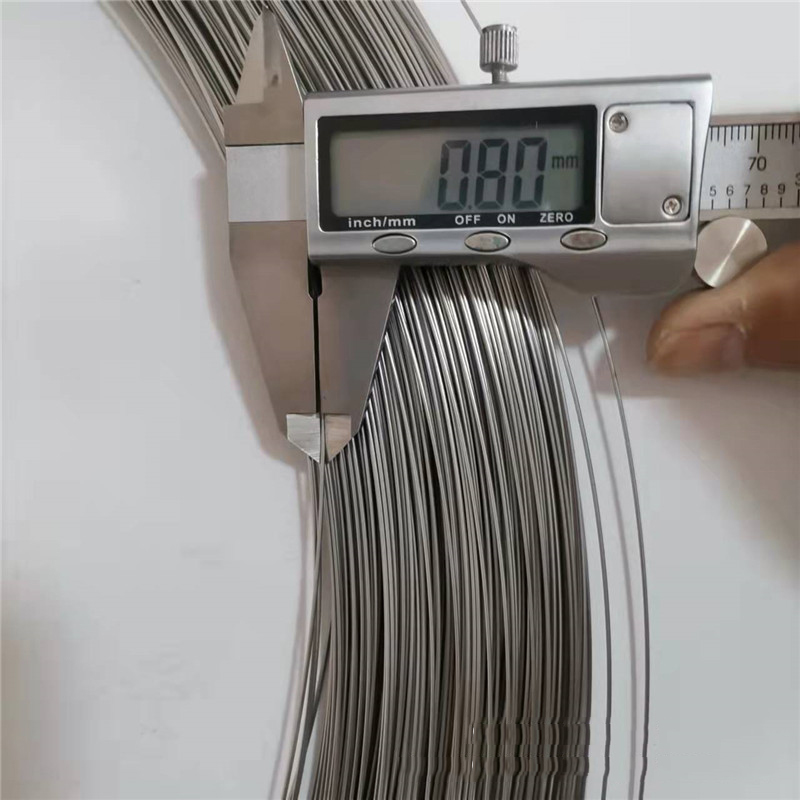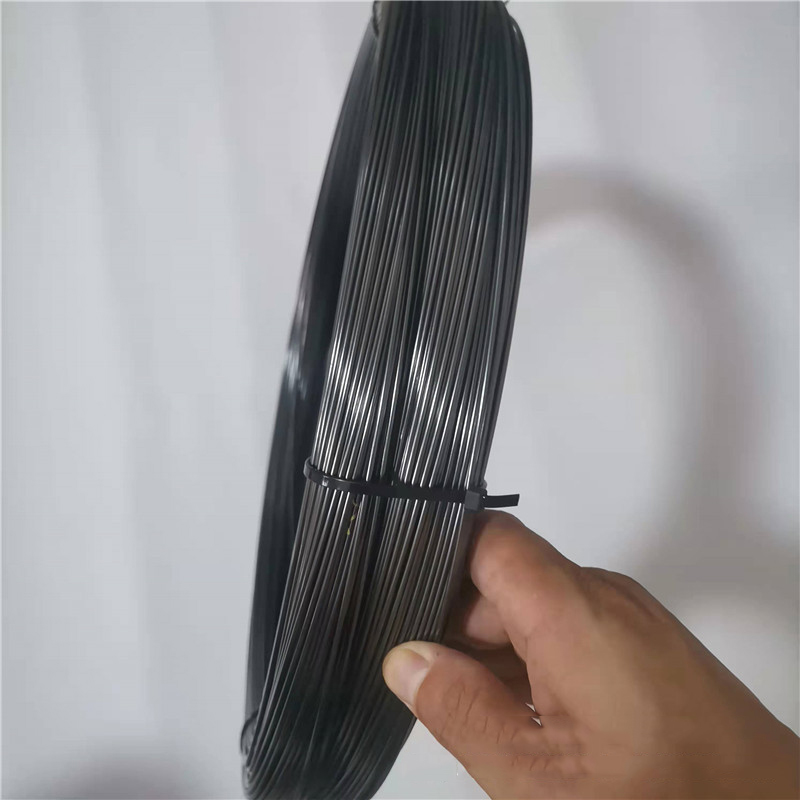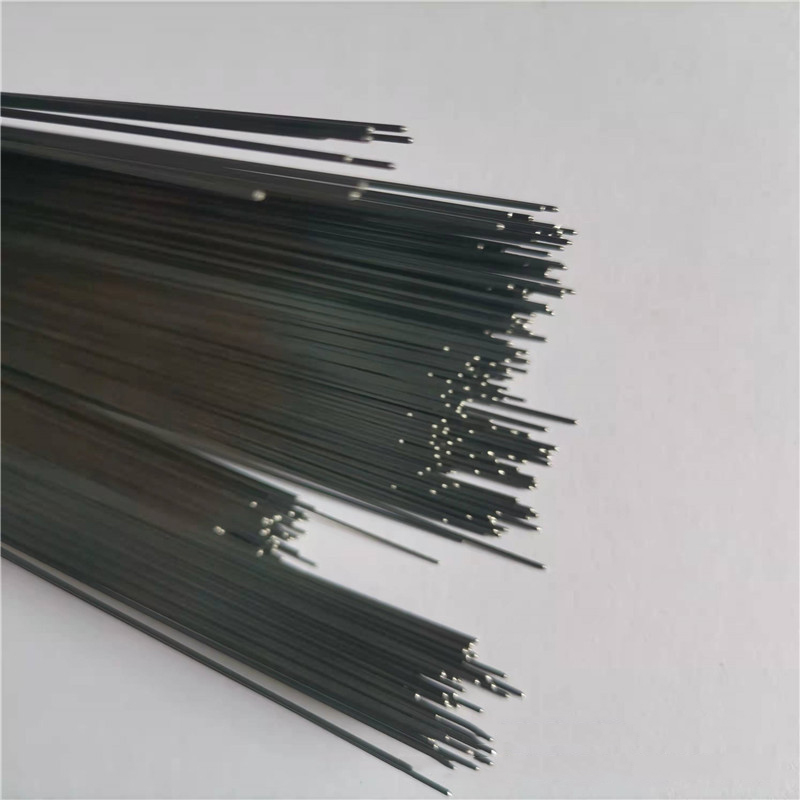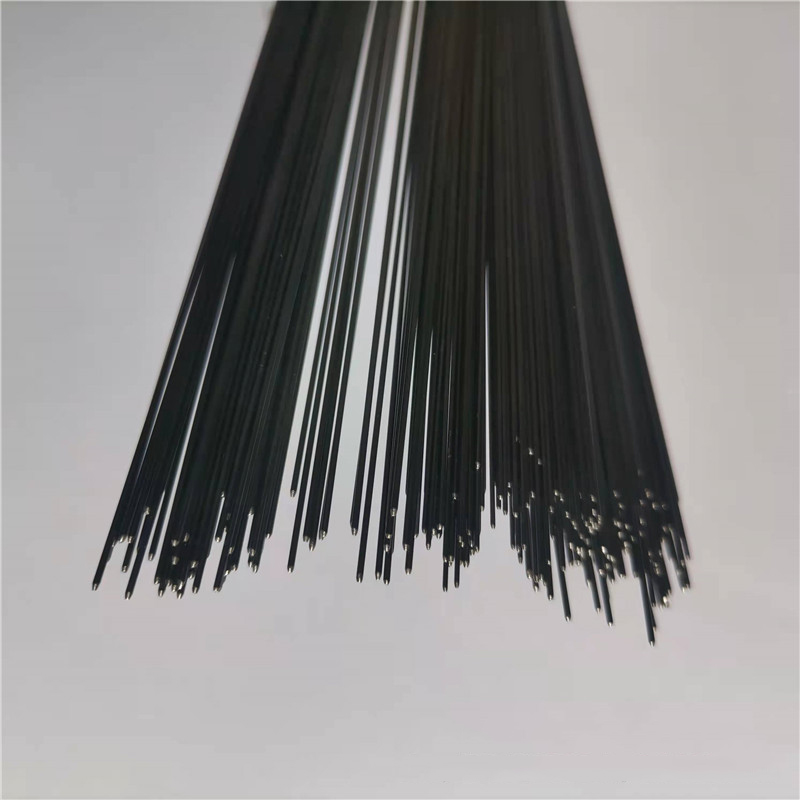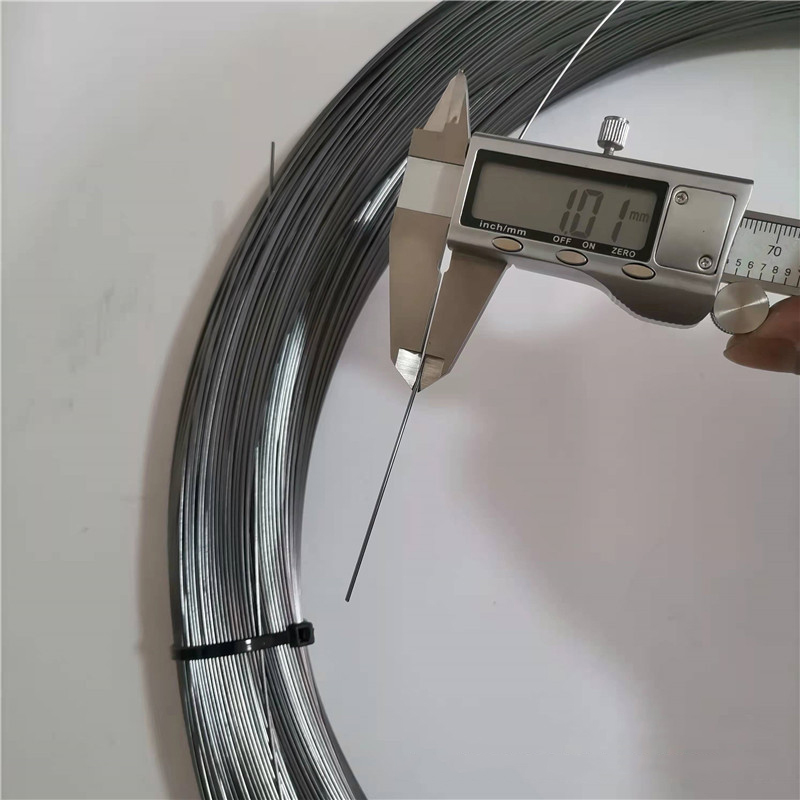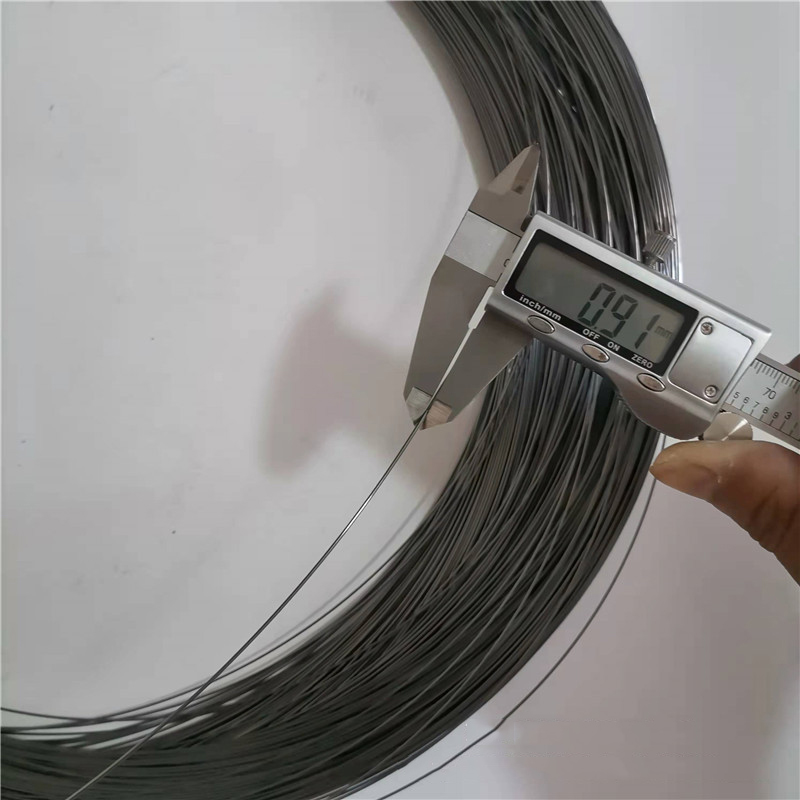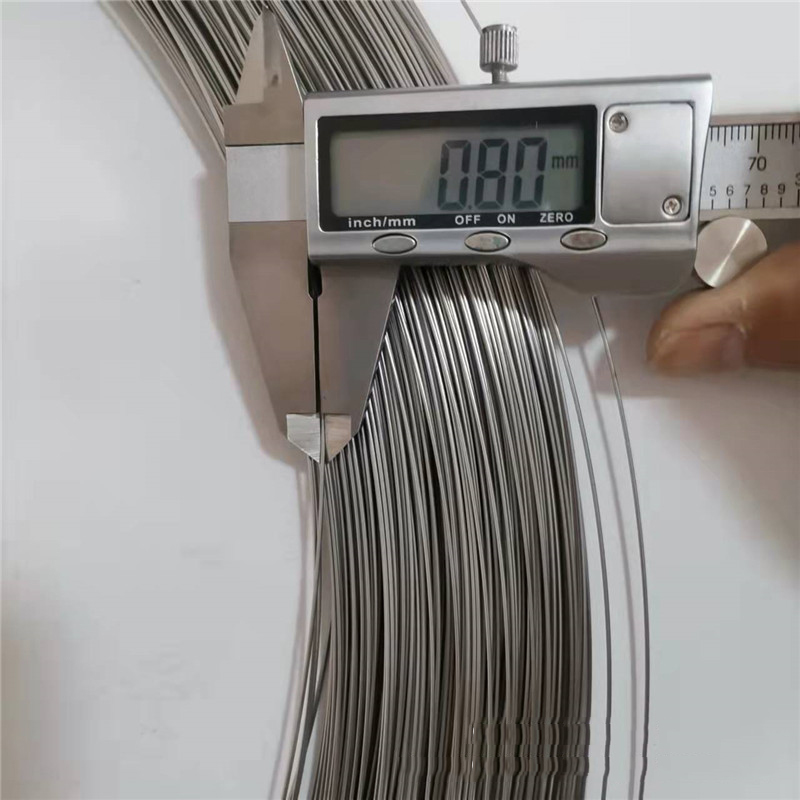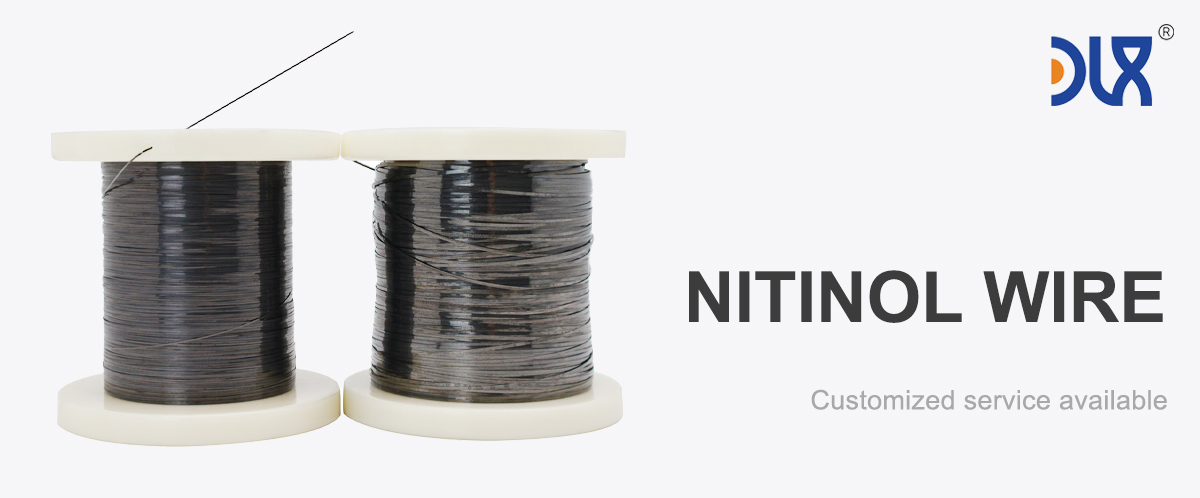
Our biocompatible Nitinol Wire is a standout in the world of medical implants, especially for vascular stents. Nitinol, a nickel-titanium alloy, is famous for its superelasticity and shape memory—properties that let it bend and twist without losing its original shape. This makes it a go-to choice for devices that need to perform flawlessly inside the human body. Our Nitinol wire is engineered to meet ASTM F2063 standards, ensuring it’s safe, reliable, and ready for the toughest medical applications. With a nickel content of 54.5-57.0% and a transformation temperature (Af) range of -25°C to 35°C, our wire is optimized for vascular stents and other implants.
What makes our Nitinol wire special? It’s all about precision and performance. We’ve nailed the balance of high tensile strength (1000-1400 MPa), excellent corrosion resistance, and a fatigue life that keeps going strong through millions of cycles. Whether it’s a stent expanding with every heartbeat or a guidewire navigating a tricky artery, our wire delivers. We’ve designed it for applications like vascular stents, orthopedic implants, and even dental devices, where reliability is everything. Plus, our strict adherence to biocompatibility standards means surgeons and patients can trust our product every time.
For more details, pls directly contact us.
Nitinol’s unique makeup is what sets it apart. Our wire is primarily nickel and titanium, with the nickel content tightly controlled at 54.5-57.0% to ensure superelasticity at body temperature—crucial for stents that need to flex without breaking. The transformation temperature range (-25°C to 35°C) is fine-tuned to activate shape memory or superelasticity in surgical settings. Compared to other materials like stainless steel or pure titanium, our Nitinol wire is in a class of its own. Stainless steel is strong but rigid, lacking the flexibility needed for minimally invasive devices. Pure titanium is biocompatible but doesn’t offer the shape memory or fatigue resistance that Nitinol brings to the table.
Our Nitinol wire also shines in corrosion resistance, standing up to the harsh environment of bodily fluids. Its high fatigue life ensures it can handle the constant stress of a beating heart or moving joint. With an elongation range of 10-20%, our wire strikes the perfect balance between flexibility and strength, making it ideal for delicate applications like vascular stents. We also offer customized variants with trace elements like chromium or iron to tweak performance for specific needs, all while maintaining ASTM F2063 compliance.
Nickel- Titanium Wire Grades and Composition Comparison
Grade | Chemical Composition (Main Elements, Balance Ti) | Transformation Temperature (Af) Range | Tensile Strength (MPa) | Elongation (%) | Main Applications |
|---|---|---|---|---|---|
NiTi-01M (Superelastic) | Ni: 54.5-57.0%, Ti: Balance | -25~35°C | 800-1100 | 10-20 | Medical orthodontic wires, root canal files, vascular stents |
NiTi-02 | Ni: 55.0-56.5%, Ti: Balance | 0~80°C | 700-1000 | 8-15 | Shape memory alloys, temperature control devices |
CuNiTi (Ternary Alloy) | Ni: 54.0-56.0%, Cu: 0.5-2.0%, Ti: Balance | -25~35°C | 850-1200 | 12-25 | Medical guidewires, sutures, staplers |
NiTiFe | Ni: 54.5-57.0%, Fe: 0.1-2.0%, Ti: Balance | -50~20°C | 900-1300 | 10-18 | Low-temperature applications, aerospace components |
NiTiCr | Ni: 54.5-57.0%, Cr: 0.1-0.5%, Ti: Balance | -20~40°C | 1000-1400 | 8-15 | High-strength medical devices, bone fixation devices |
For more details, pls directly contact us.
The Nitinol wire market is on fire, and it’s no surprise why. In 2025, the global medical device market is growing at a CAGR of 5.6%, with Nitinol leading the charge for vascular stents and implants. The push for minimally invasive surgeries is a big driver—patients want faster recoveries, and surgeons want tools they can trust. Nitinol’s ability to collapse for delivery and expand inside the body makes it perfect for these procedures. Vascular stents, in particular, are in high demand due to rising cardiovascular issues, while orthopedic and dental applications are also growing as populations age.
Outside of healthcare, industries like aerospace and robotics are tapping into Nitinol’s shape memory for actuators and sensors, but medical remains the biggest player. Trends show a shift toward customization—tailoring Nitinol’s properties like transformation temperature or tensile strength to specific procedures. Robotic-assisted surgeries are another hot area, with Nitinol guidewires enabling pinpoint precision. Challenges like high production costs and strict regulations (like ASTM F2063) keep the bar high, but our advanced manufacturing and quality control make us a leader in this space.
Applications of Our Nitinol Wire
Our biocompatible Nitinol wire is a versatile powerhouse in medical devices. Here’s where it makes an impact:
Vascular Stents: Our wire’s superelasticity lets stents collapse for catheter delivery and expand perfectly in arteries, reducing trauma and improving patient outcomes.
Guidewires: Surgeons love our Nitinol for its kink resistance and flexibility, making it ideal for navigating complex vascular or neurological pathways.
Orthopedic Implants: From spinal fixation to bone plates, our wire provides the strength and flexibility needed for dynamic healing environments.
Dental Devices: The shape memory effect ensures consistent pressure in orthodontic braces, making treatments more effective and comfortable.
Sutures and Staplers: Our wire’s ability to return to a preset shape is perfect for self-closing sutures and minimally invasive stapling devices.
These applications show why Nitinol is a game-changer for modern medicine, especially in minimally invasive procedures where precision is critical.
Company Comparison
When it comes to biocompatible Nitinol wire, we’re at the top of the game. Our ASTM F2063-compliant wire is crafted with precision, from tightly controlled nickel content to a mirror-smooth surface finish that minimizes implant complications. We invest heavily in R&D to optimize transformation temperatures and mechanical properties, ensuring our wire meets the exact demands of vascular stents and other implants. Our competitors may produce Nitinol, but we go the extra mile with enhanced biocompatibility testing and a fatigue life that outlasts industry standards.
Our supply chain is another edge. We’ve streamlined production to deliver Nitinol wire quickly, whether it’s a small batch for prototyping or a large order for global distributors. Our team works hand-in-hand with clients to customize wire specs—think tailored Af temperatures or boosted corrosion resistance for specific stents. We also use cutting-edge manufacturing to achieve tighter tolerances, reducing the risk of defects. This commitment to quality and flexibility makes us the go-to choice for medical device innovators.
Comparison Table of Nitinol Wire Parameters
Parameter | Our Nitinol Wire (ASTM F2063) | Stainless Steel | Pure Titanium |
|---|---|---|---|
Nickel Content | 54.5-57.0% | 0% | 0% |
Transformation Temp (Af) | -25~35°C | N/A | N/A |
Tensile Strength (MPa) | 1000-1400 | 500-1000 | 240-550 |
Elongation (%) | 10-20 | 15-40 | 20-30 |
Superelasticity | Yes | No | No |
Shape Memory | Yes | No | No |
Corrosion Resistance | Excellent | Good | Excellent |
Biocompatibility | High (ASTM F2063 compliant) | Moderate | High |
Applications | Vascular stents, guidewires, implants | Screws, plates | Bone implants |
Our Nitinol wire is more than a material—it’s a solution built for success. Here’s why it’s the best pick for vascular stents and implants:
Top-Tier Quality: Every batch meets ASTM F2063 standards, with extensive testing for biocompatibility, corrosion resistance, and mechanical performance.
Customizable: We tailor transformation temperatures, tensile strength, and elongation to fit your specific implant needs.
Long-Lasting: Our wire’s high fatigue life ensures implants perform reliably through millions of cycles, critical for patient safety.
Fast Turnaround: Our efficient supply chain delivers high-quality Nitinol wire on time, every time.
Expert Support: Our material scientists and engineers are here to collaborate, ensuring your devices meet the highest standards.
Future Trends and Our Commitment
The Nitinol wire market is evolving fast. Advances in 3D printing and nanotechnology could make Nitinol even more versatile, like improving its radiopacity for better imaging during surgery. Robotic-assisted procedures are also driving demand for ultra-precise guidewires, and our Nitinol is ready to meet that challenge. We’re investing in next-gen manufacturing to stay ahead, exploring ways to enhance alloy properties while keeping costs competitive.
Sustainability is a big focus too. We’re working to make our production greener, from energy-efficient processes to recycling Nitinol scrap. As healthcare shifts toward eco-friendly practices and regulations get tougher, we’re committed to leading the way. Our goal is simple: deliver the best biocompatible Nitinol wire for vascular stents and implants, backed by innovation and quality.
Conclusion
Our ASTM F2063-compliant Nitinol wire is redefining what’s possible in vascular stents and implants. Its superelasticity, shape memory, and biocompatibility make it the perfect choice for minimally invasive procedures. With a growing medical device market and trends favoring precision and customization, our Nitinol wire is built for the future. By choosing us, you’re getting more than a product—you’re partnering with a company dedicated to quality, innovation, and your success. Let’s transform healthcare together.
For more details, pls directly contact us.
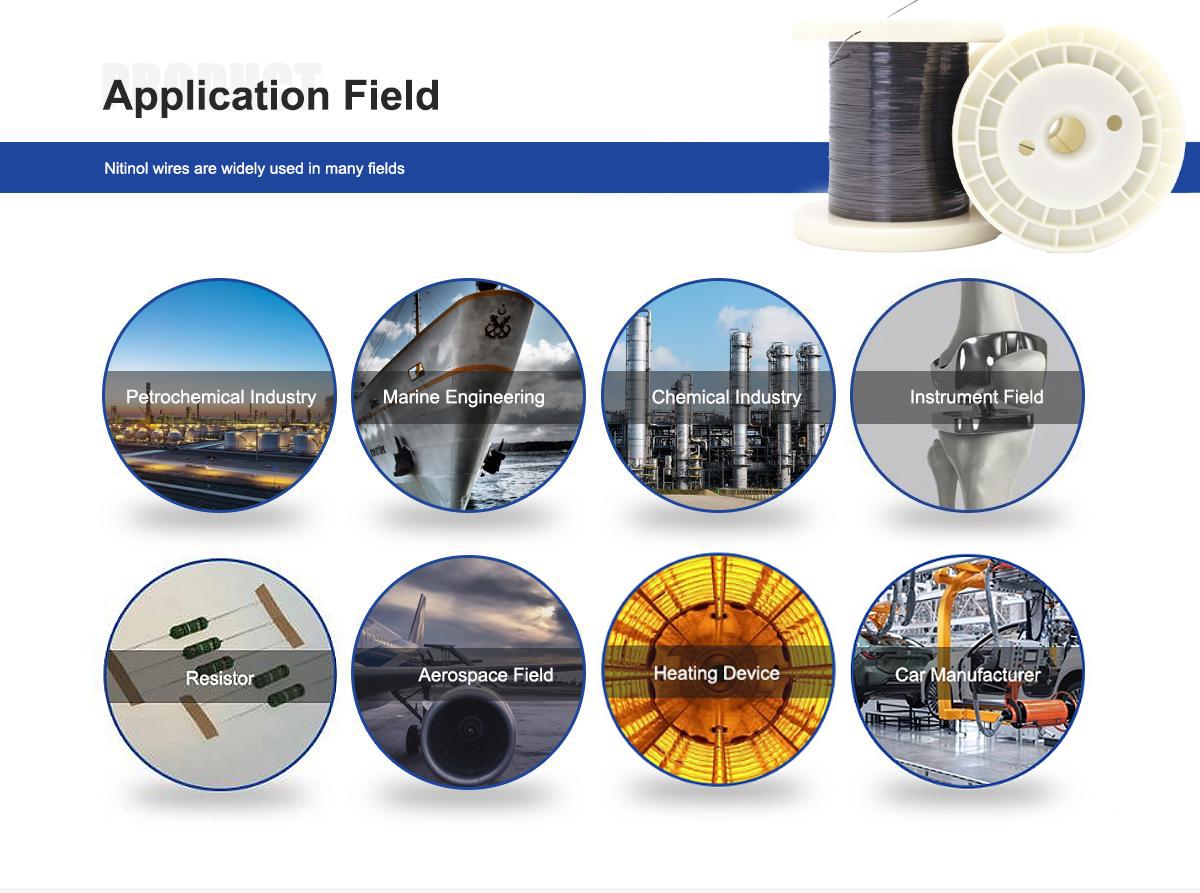
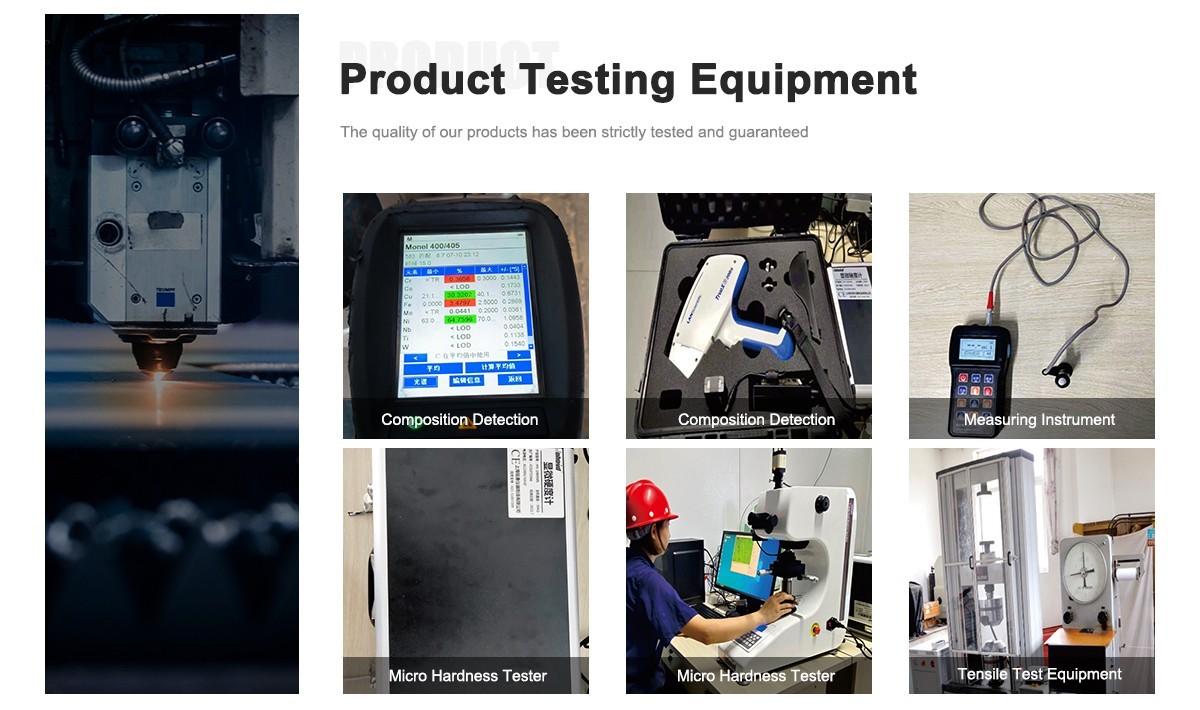
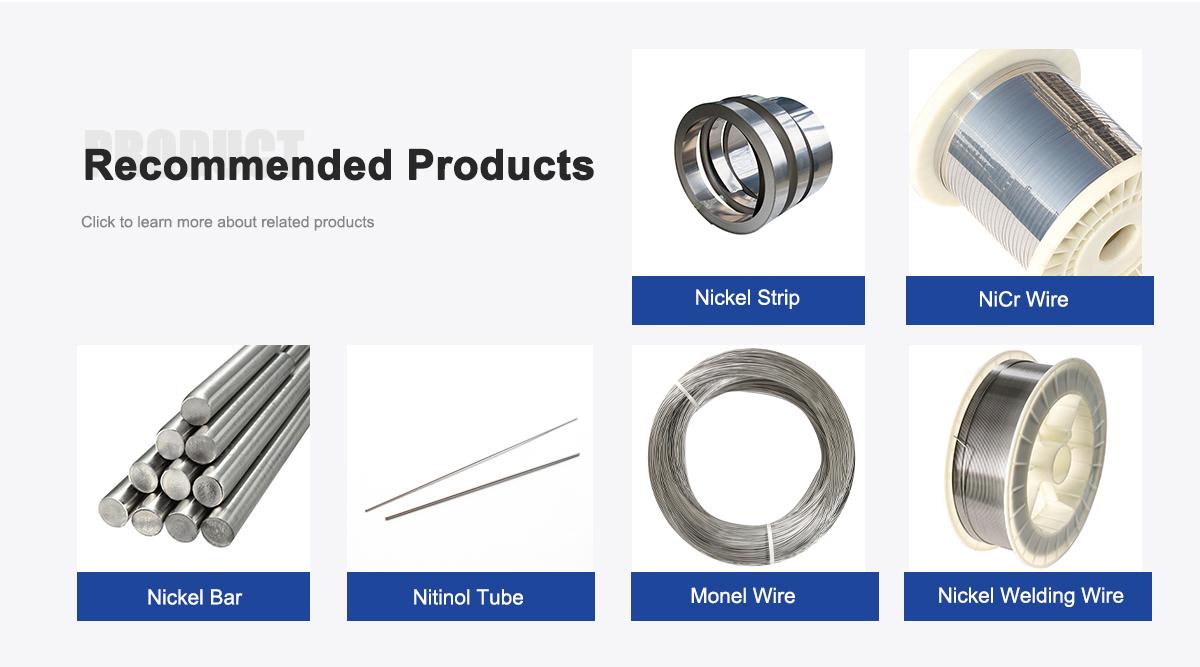
About Us:
Our 12,000㎡ factory is equipped with complete capabilities for research, production, testing, and packaging. We strictly adhere to ISO 9001 standards in our production processes, with an annual output of 1,200 tons. This ensures that we meet both quantity and quality demands. Furthermore, all products undergo rigorous simulated environment testing including high temperature, high pressure, and corrosion tests before being dispatched, ensuring they meet customer specifications.
For all our clients, we offer timely and multilingual after-sales support and technical consulting, helping you resolve any issues swiftly and efficiently.
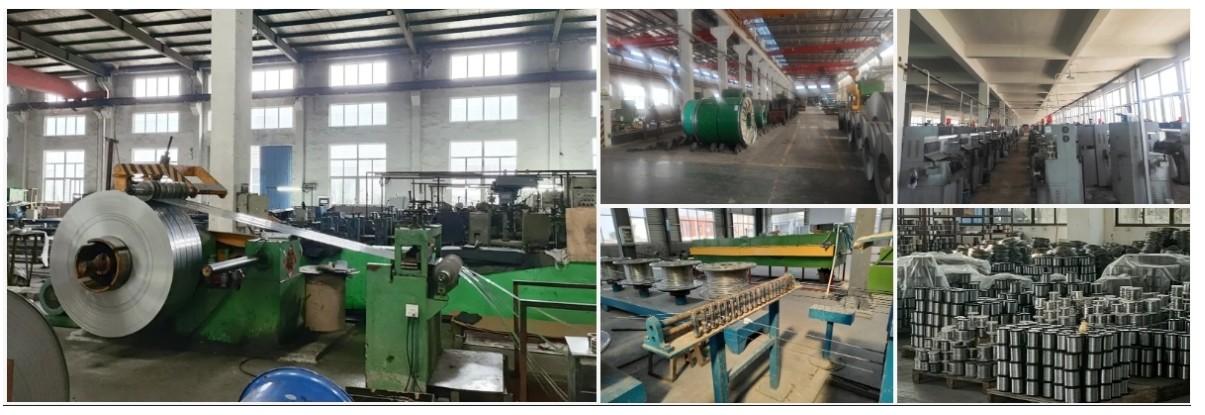
Client Visits
Building Stronger Partnerships
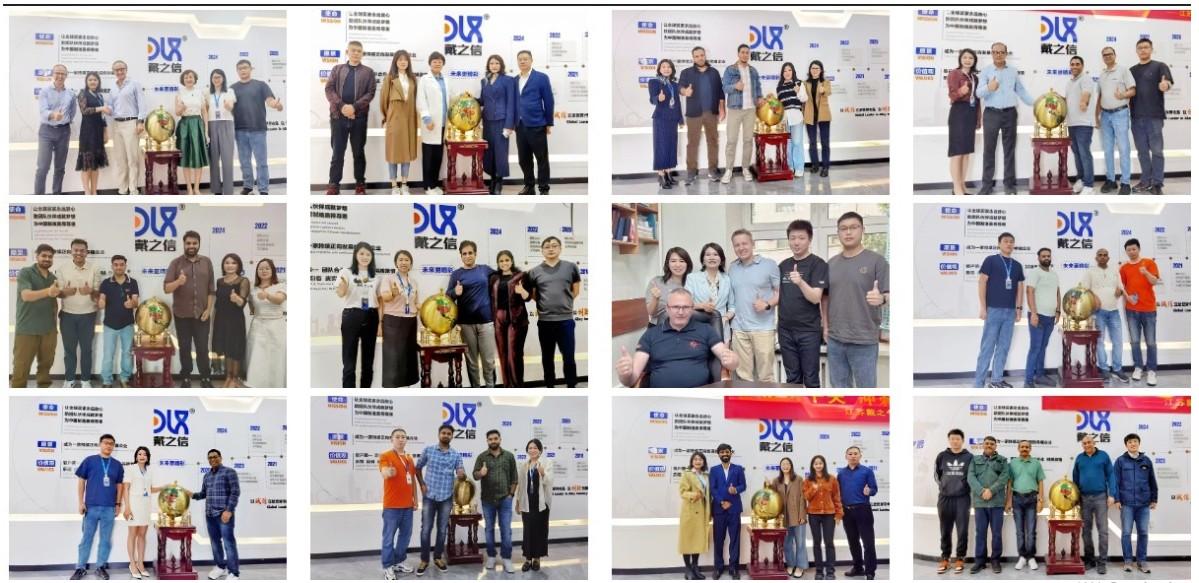
We support all kinds of testing:
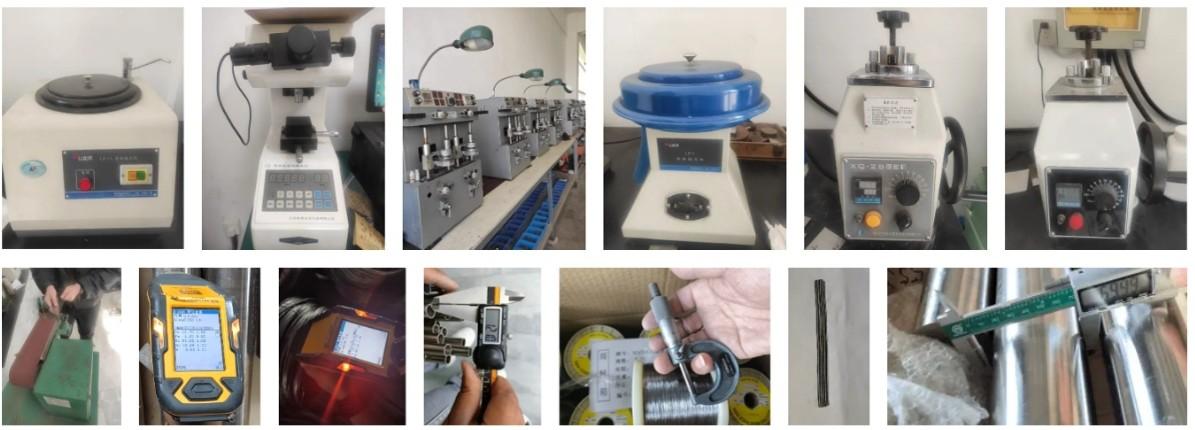

FAQs:
What is Nitinol wire, and why is it ideal for vascular stents?
Nitinol wire is a nickel-titanium alloy with superelasticity and shape memory, perfect for vascular stents due to its flexibility, durability, and ability to return to a preset shape.How does our Nitinol wire ensure biocompatibility?
Our Nitinol wire meets ASTM F2063 standards, undergoing rigorous testing to ensure it’s safe for long-term implantation in the human body without causing adverse reactions.What specific applications does our Nitinol wire support?
It’s used in vascular stents, guidewires, orthopedic implants, and dental devices, offering unmatched flexibility and strength for minimally invasive procedures.What makes Nitinol wire better than other materials for stents?
Unlike stainless steel or titanium, Nitinol’s superelasticity and shape memory allow stents to collapse for delivery and expand reliably in the body.Which industries use our biocompatible Nitinol wire?
Primarily medical for stents and implants, but also aerospace and robotics for actuators and sensors requiring shape memory properties.What are the key benefits of our Nitinol wire?
Our wire offers exceptional corrosion resistance, high fatigue life, and precise transformation temperatures, ensuring reliable performance in critical applications.How is the Nitinol wire market evolving?
The market is growing due to demand for minimally invasive surgeries, advancements in alloy customization, and increased use in robotic-assisted procedures.How does our Nitinol wire support minimally invasive surgeries?
Its superelasticity allows for smaller, more flexible devices that navigate complex anatomy, reducing patient trauma and speeding recovery.

